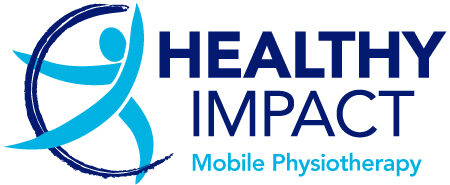Weight Management
Weight Management under a Physiotherapist's guide
Physiotherapists spend years studying the physiology and anatomy of the human body. Patients often feel more comfortable asking for general advice about how to best manage their weight during a consultation. Physiotherapists can provide basic information and advice through the provision of general nationally endorsed public health information that will educate and support positive patient health outcomes.
Patients often know that they would ‘be healthier and feel better’ if they lost some weight. They don’t need to be told. But they might need some guidance and support to sift through huge amounts of information on the topic to save time and money. However, it is important that patients are aware of how excess weight contributes to the risk and progression of diseases. Just like back pain, being overweight can contribute to reduced mobility, poor mental health, reduced quality of life and early death.
We can offer a personalised approach to the discussion of weight management strategies. There are different treatment options available to patients who wish to reduce their weight. Choice and patient-led solutions allow for meaningful discussions with their physiotherapist. Physiotherapists can help by providing patients with appropriate support, guidance and tools to achieve weight loss and to maintain a healthy weight.
If you have any other questions please feel free to check out our “FAQ” page or contact us here at Healthy Impact
Weight management
strategies include
- Modifying diet to restrict energy intake
- Increasing physical activity and exercise to increase energy expenditure, maintain fitness and minimise loss of muscle mass
- Supporting healthier behaviours and encouraging strategies that ensure longer term success.
- Combination of all the above tools with a personalised approach tailored to cater for individual needs
Energy in and Energy out’
Weight loss is not as easy as ‘Energy in and Energy out’, it is way more complicated than that. Education and support are the most powerful tools, but you need to be in the driver’s seat. Long-term results are what we are looking for.
Just like exercise, if you haven’t been to a gym in 10 years and you go hard and fast, your body is going to be in a world of pain. A graded approach to behaviour changes and weight loss is the best approach, just like exercise. Slow and steady wins the race.
Read our FAQ page here or if you have a question, contact Scott on
0402 221 397 (9am – 5pm Mon – Fri)
healthyimpactqld@gmail.com (Anytime)
Important points to mention
Medical management will be required for patients with:
– Complex medical, psychological or physical co-morbidities and/or obesity class 3 (BMI >40 kg/m2)
– Weight > 150kgs due to the increased risk of medical conditions
– Type I diabetes
– Type II diabetes requiring insulin or other medication
– Warfarin use
– Stroke or cardiac event in the previous six months
– Unstable cardiovascular condition
– Fluid intake restriction
– Renal disease or problems
– Taking drugs that contribute to weight gain
– Excessive weight loss during a weight management program
Referral to a dietician might be considered with:
– complex dietary needs including food allergies or dietary preferences such as vegan
– co-morbidities such as diabetes
– behaviours that could indicate an eating disorder
Referral to a psychologist might be considered with:
– mental health concerns such as depression and anxiety which are common in people with obesity.
– disordered eating patterns such as binge eating, bulimia, anorexia
– patients having difficulty losing weight or preventing weight regain and psychosocial factors appear to be playing a key role
– excessive or extreme exercise behaviours







